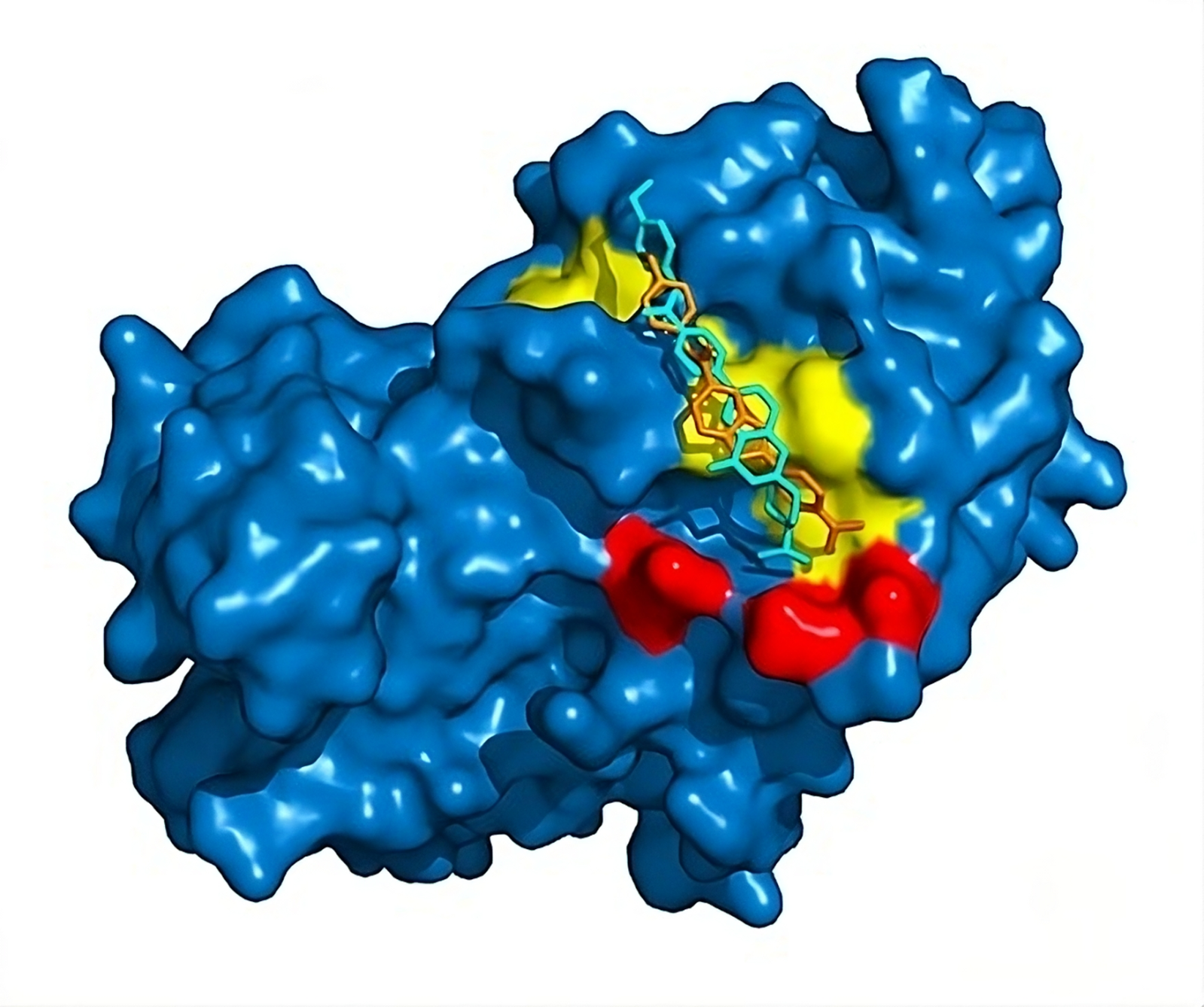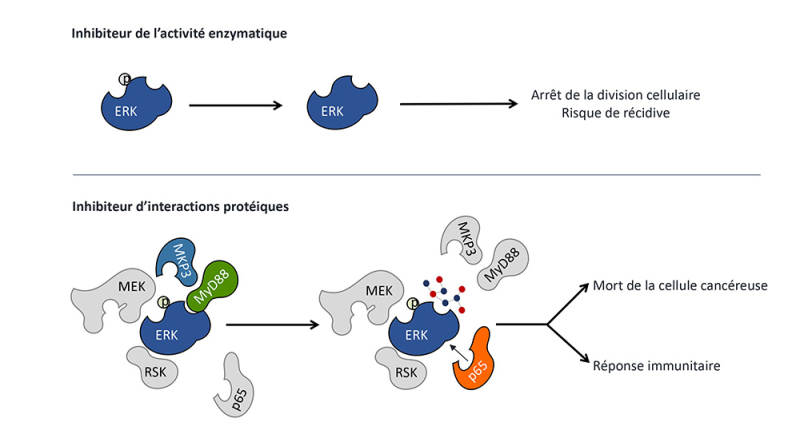Follow us on Google News (click on ☆)
In a study published in Nature Communications, scientists, rather than targeting the function of a single protein, blocked the interaction ability between two of them. The results obtained, in mouse models, show that this strategy induces tumor cell death and also activates an immune response against the tumor.

© I. Coste and T. Renno
In order for cancer cells to proliferate, several proteins must interact with each other. Among them is a protein called ERK, which plays an important role in one of the pathways that leads to proliferation. Currently, treatments are focused on inhibiting the function of ERK.
In this study published in the journal Nature Communications, scientists developed pharmacological inhibitors capable of blocking the interaction between ERK and MyD88, a protein involved in inflammation.
The results showed that when the interaction is blocked, the cancer cells derived from patient tumors undergo significant stress, which pushes them to die.
Experiments conducted on mouse models showed that blocking the ERK-MyD88 interaction not only reduces tumor size but also stimulates an immune response against these tumors.
This work represents a new approach: the aim is not to directly target the enzymes involved in tumor growth but rather the interactions between proteins. This method paves the way for new, more targeted cancer treatments, which could be more effective while reducing side effects, as they act more precisely. These results are currently in preclinical development to assess their potential for future clinical treatments.

Comparison of mechanisms of action between enzymatic inhibitors and protein interaction inhibitors.
At the top: Inhibiting ERK enzymatic activity leads to the cessation of cell division, but with a risk of recurrence.
At the bottom: Disrupting protein interactions in the signaling pathway involving ERK, MEK, MyD88, and other partners leads to cancer cell death and activates an immune response, offering a more complete therapeutic effect.
© I. Coste and T. Renno
Reference:
Virard, F., Giraud, S., Bonnet, M. et al. Targeting ERK-MYD88 interaction leads to ERK dysregulation and immunogenic cancer cell death. Nat Commun 15, 7037 (2024). https://doi.org/10.1038/s41467-024-51275-z